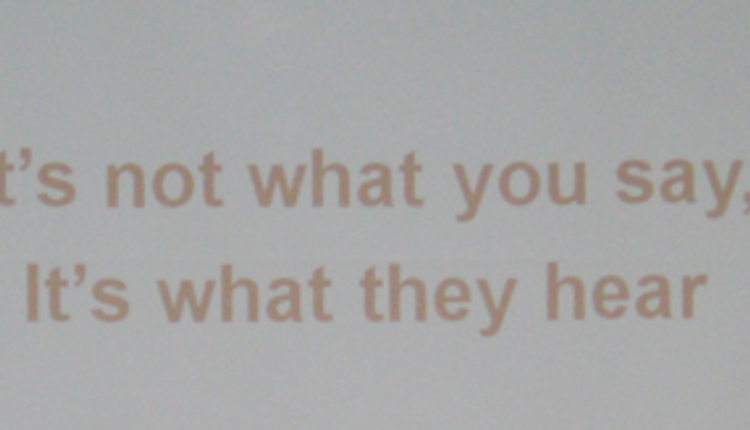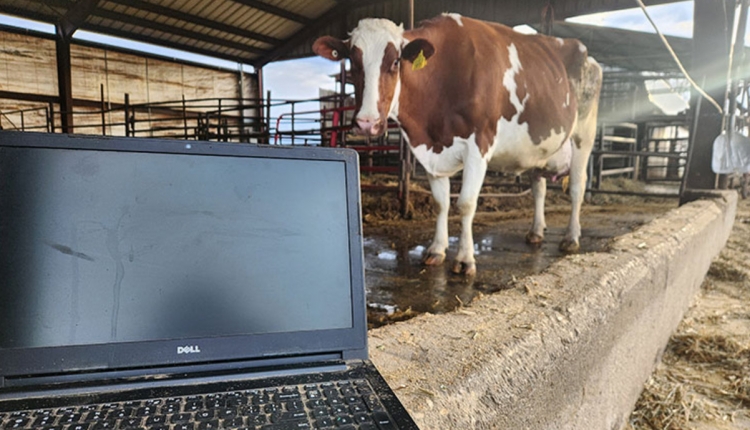The romanticism of farmers and cowboys has been portrayed in movies and on television for decades. The strong jaw lines, those rugged looks, wholesome smile, yet a sweet spot in their hearts for their animals, draws people to those closest to the earth and its creatures. However, there is a disconnect. Consumers love the farmer, but are unsure of the practice of "farming." As farmers, we farm; that is what we do. But, to the consumer, they have challenges in merging the two and loving the ''farming'' that the farmer represents.
As producers, we need to share the "farming" with our consumer friends. And, "friends" is what they need to be. We need them to purchase our products, and they need us to grow and provide nutrition to their families. This needs to be a positive relationship, but not a forced dependence, where one is deemed more important to the other. "I farm. You eat." While it may be true, it can take on a very arrogant tone. We need to remember when we share information about agriculture and our farms; we are not sharing information with unintelligent and simple-minded people. We are talking to people–people who care about their family, just like you–so talk with them, not at them.

No one wants to be talked down to. But, peak someone's curiosity and they will ask questions, and that is when they are most receptive to learning new information. Closed-minded individuals are not willing to listen to any information that is in opposition to their mind-set. Your time is best invested with the "movable middle," those that are willing to listen to your viewpoint and alter their opinion if your message resonates with them. Tell them about your dairy and how you care about your cows and calves. This will allow them to see you as a person first and a dairy producer second.
These are a few of the message and conversations that have been discussed at the Ag Chat Foundation 2.0 conference in Nashville, Tenn., yesterday. The conference concludes this morning. Research was shared with the group on how consumers react to the scientific and technical jargon we have a tendency to spew. Much higher consumer feedback was given when farmers talked in common terms that relate to people and their emotions, rather than the raw facts.
So, the next time you share information with a consumer, envision them as a friend and share your story. And, at the conclusion of the conversation, your message will be well-received and a new friendship may be forged.
View a short video about the value in having conversations with consumers, focusing on social media, prepared by AgChat.

As producers, we need to share the "farming" with our consumer friends. And, "friends" is what they need to be. We need them to purchase our products, and they need us to grow and provide nutrition to their families. This needs to be a positive relationship, but not a forced dependence, where one is deemed more important to the other. "I farm. You eat." While it may be true, it can take on a very arrogant tone. We need to remember when we share information about agriculture and our farms; we are not sharing information with unintelligent and simple-minded people. We are talking to people–people who care about their family, just like you–so talk with them, not at them.

No one wants to be talked down to. But, peak someone's curiosity and they will ask questions, and that is when they are most receptive to learning new information. Closed-minded individuals are not willing to listen to any information that is in opposition to their mind-set. Your time is best invested with the "movable middle," those that are willing to listen to your viewpoint and alter their opinion if your message resonates with them. Tell them about your dairy and how you care about your cows and calves. This will allow them to see you as a person first and a dairy producer second.
These are a few of the message and conversations that have been discussed at the Ag Chat Foundation 2.0 conference in Nashville, Tenn., yesterday. The conference concludes this morning. Research was shared with the group on how consumers react to the scientific and technical jargon we have a tendency to spew. Much higher consumer feedback was given when farmers talked in common terms that relate to people and their emotions, rather than the raw facts.
So, the next time you share information with a consumer, envision them as a friend and share your story. And, at the conclusion of the conversation, your message will be well-received and a new friendship may be forged.
View a short video about the value in having conversations with consumers, focusing on social media, prepared by AgChat.










